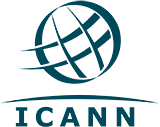A content management system, often abbreviated as CMS, is an application or software that allows for the creation, organization, storage, and efficient management of digital content. These systems facilitate the creation and management of websites, blogs, and other types of online content.
Some common features of a CMS include:
- Content Editor: It enables intuitive creation and modification of content, much like a word processor, without requiring advanced programming knowledge.
- Organization and Structure: Facilitates hierarchical organization of content, providing easy navigation for users.
- User Management: Allows for defining different roles and permissions for users, ensuring that only authorized individuals can access and edit content.
- Templates and Design: Enables the use of pre-defined or customized templates to establish the appearance and layout of the website.
- Media Management: Enables uploading, storing, and managing images, videos, and other multimedia files.
- SEO (Search Engine Optimization): Some CMS platforms offer built-in features to optimize content and improve search engine rankings.
- Updates and Maintenance: CMS systems typically receive regular updates to enhance security and functionality.
CMS platforms are widely used in creating and managing websites and blogs as they streamline the content publishing and maintenance process, allowing website owners to focus more on content creation and less on technical aspects. Some popular examples of CMS platforms are WordPress, Joomla, Drupal, and Wix, among others.














